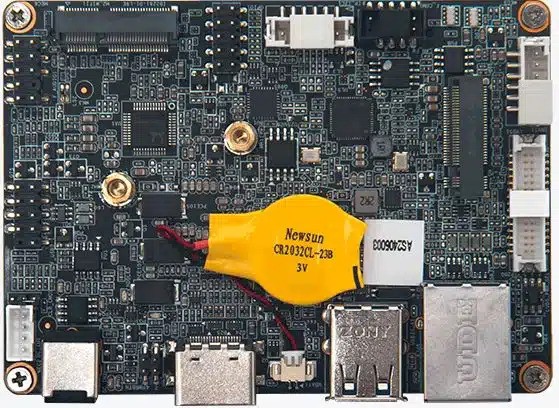
Choosing the Right Industrial Motherboard
Posted on September 3, 2024
Picking the right industrial motherboard can be tricky. From the form factor, the technical specifications, the chipset, and even the manufacturer, there are many crucial factors you need to consider. How can you balance it all?
Picking a Form Factor
The first question when you are choosing a motherboard for your industrial computer is the form factor. Not only does it decide the size, but also the kind of features and the number of expansion cards it can accommodate.
From Micro-ATX to Mini-ITX to Nano-ITX and even Pico-ITX, there is a wide range of form factors that keep growing smaller and smaller, improving efficiency but decreasing capabilities. Depending on the use case and the level of extensibility required, the form factor must be carefully chosen to give the best balance of performance and affordability.
Then there are single-board PCs that are meant to be fully functional by themselves, making them very reliant on the features present in the motherboard by default.
Extensibility
Different applications have dramatically different requirements. A network computer, for example, requires a lot of Ethernet ports to connect with all the network cables going through the facility. A server, on the other hand, needs more storage.
As such it is essential to verify that the motherboard you are going for has the expansion slots you need. PCI-E is the standard slot for installing these additional features, though in recent years M.2 has emerged as a more flexible alternative.
I/O options must be considered too, as they are usually built into the motherboard itself. An industrial automation system or a Human-Machine Interface (HMI) panel needs to connect with many different types of electronics and as such calls for an industrial motherboard with a higher number of input-output ports.
Size And Cooling
We have spoken of the form factor in relation to the features required, but size can be a constraint as well. Some embedded PCs must be installed in very tight spaces, or act as distributed Internet-of-Things (IoT) devices, demanding the smallest footprint possible.
Larger boards often require better cooling as well, which must then be met either through active cooling solutions like fans or larger heatsinks and fins built into a fanless chassis. This also means a higher power draw, which can add up when deploying at scale.
As a result, the expected size of the industrial computer is as important a factor as the feature set its motherboard needs to possess, with the combination of both yielding the ideal form factor and specifications required.
What Role Does the Brand Play in This?
Contrary to popular expectations, AMD and Intel do not make motherboards. They merely release chipsets, giving manufacturers a core configuration around which they can build the boards.
This means different manufacturers offer very different capabilities for the same chipset and processor, making the process of choosing one even more confusing. And this is before we go into concerns like technical support and ethical sourcing, which add another layer of distinction on top.
And there is no one best industrial motherboard manufacturer – different companies have come to specialize in building boards for different niches and applications. The brand you rely on for a rugged industrial computer wouldn’t be your choice for procuring medical panel PCs.
So What’s the Best Way to Choose an Industrial Motherboard?
As we have seen, there are a lot of factors that go into choosing the correct motherboard for an application, and you don’t want to get it wrong. Unlike a home PC, an industrial computer is commissioned at scale and meant to last several years, rendering any motherboard deficiencies very expensive to fix.
This is why the best approach is to just let the experts handle this aspect. Here at Global American, for example, our team will finalize the perfect industrial motherboard for your use case and your budget.
Thanks to our partnerships with leading manufacturers, we know the best brands for every type of industrial board and already have a portfolio of computers built on them. We also take on the responsibility of ensuring compliance with all required standards for the boards we supply, along with providing technical support through its lifecycle.
This removes the guesswork and research required to choose an industrial board, letting you focus on running your business while we supply you with the right hardware for the job.
